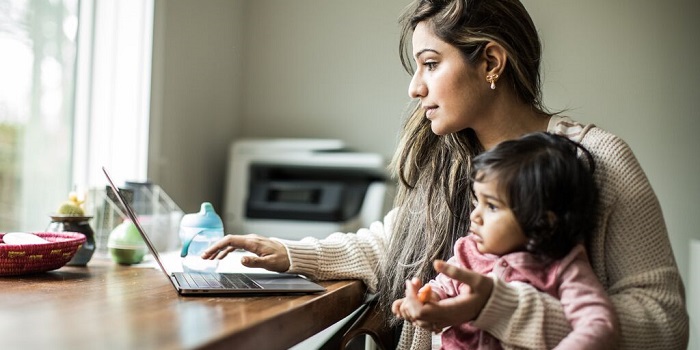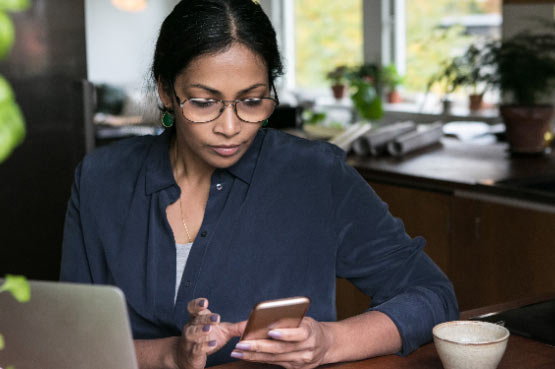What is health anxiety?
Health anxiety is when you worry a lot about being or becoming unwell. It involves an intense fear of illness, which can be debilitating and negatively affect your life. But health anxiety is treatable with the right help and support. Here, I discuss what causes health anxiety and ways to manage it if you, or a loved one, has it.

How common is health anxiety?
Anyone can have health anxiety, but it’s thought to be on the rise. This may be because of the amount of time people spend browsing the internet. It’s now very easy to search for health information, some of which can be alarming.
What are the signs of health anxiety?
If you have health anxiety, you can become convinced that harmless physical symptoms are signs of serious disease. For example, if you’re feeling stressed, your chest may feel tight, and your breathing might get faster. These are normal physical reactions to stress. But if you suffer with health anxiety, you may believe you’re having a heart attack.
If you or a loved one have health anxiety you may:
- feel preoccupied with thinking about a serious illness
- constantly worry about your health
- obsessively look at health information online, researching symptoms and trying to find a diagnosis
- constantly need reassurance from your GP, friends and family that you’re not ill
What causes health anxiety?
The coronavirus pandemic may have increased health anxiety in the population. Also, having so much health information readily available at the touch of a button isn’t always helpful.
People with health anxiety often fear severe illness, such as cancer or dementia, rather than common, milder conditions, such as a cold.
This can lead them to research severe illness when they have mild symptoms, leading to a fear that they have it. That person may then focus on health information related to their feared diagnosis.
Managing health anxiety – breaking the cycle
While health anxiety can make life challenging, there’s lots you can do to reduce its impact on your wellbeing. The following tips may help.
Try mindfulness and meditation
Research shows that taking time out to unwind and calm our thoughts can have a positive effect on our health and wellbeing. Practising mindfulness and breathing techniques are both great ways to reduce anxiety and promote relaxation.
Keep a diary
Keep a diary and note down things to do with your health and worries. You could include:
- what you notice in your body
- if and when you ask for reassurance from people
- how often you check your body
- what health information you look at and for how long
- anything that triggered feelings of worry or anxiety about your health
Keeping a diary can help you notice patterns of behaviour. This may help you understand and reduce them.
Reduce the time you spend looking for reassurance
It’s important to seek medical advice from time to time. But repeatedly looking for reassurance or information about your symptoms can be unhelpful.
In fact, spending too much time looking at information online can make you more convinced you have a physical illness.
Try to reduce how often you seek reassurance. Instead, build up a sense of confidence in your own wellbeing.
Every time you have the urge to go on the internet, distract yourself or do something you enjoy. Make a cup of tea, call a friend or head out for a walk. Other things that may help include the following.
- Put your phone or tablet away during times of anxiety.
- Keep devices out of your bedroom so you’re not tempted to search online during the evening or if you wake at night.
- Avoid TV shows about medical emergencies or illness, as these may trigger feelings of worry.
- Focus on something you get enjoyment from, such as drawing, exercise, cooking, or baking.
Cognitive behavioural therapy (CBT)
Cognitive Behavioural Therapy (CBT) is a type of talking therapy that can help to improve your mental health. It aims to change negative thoughts and beliefs you may have that can affect how you feel and behave.
CBT is an effective treatment for any form of anxiety, including health anxiety. Your therapist may help you explore the reasons why you first developed health anxiety. For example, a friend or family member suddenly becoming ill unexpectedly can be a trigger for it.
Learn more about how it works in our animation.
CBT technique for unhelpful thoughts (animation)
Cognitive behavioural therapy (CBT) is a type of therapy that can help to improve your mental health. It aims to change negative thoughts and beliefs you may have, that can affect how you feel and behave.
Hundreds of automatic thoughts pop into our head every day. Sometimes these are negative and unhelpful. But thoughts are not facts, so it’s helpful to challenge our thinking. A ‘thought record’ is one CBT technique that can help you look at negative thoughts in a more balanced way.
This exercise works well if you have a notepad and pen to write down your answers.
Step 1. Think about the situation that’s upsetting you. What emotions and feelings do you have?
How intense are they? Rate the intensity from one to 10, with 10 being the most intense.
Step 2. What is the negative thought?
Try and be specific about the thoughts running through your mind and write them down. Perhaps something hasn’t gone as well as you’d have liked. Your thoughts start spiralling and you start to think that everything always goes wrong and maybe even that you’re a bad person.
Step 3. Now it’s time to put your thoughts on trial. Focus on the facts – is there any factual evidence that this thought is true?
Does everything always go wrong? Are you really a terrible person? Was what happened your responsibility entirely? Would you say the same things to someone you cared about who was in this situation?
Step 4. Now, what is the evidence that this thought is not true?
Can you think of a time when something you did went well? What about your friends and family and how much they care and value you? What are the good things in this situation?
Step 5. Weigh up the evidence. Is there an alternative thought? A more balanced and realistic way of looking at things?
Perhaps alternative thoughts could be: Things didn’t go as well as I’d liked, but that’s ok. Everyone makes mistakes sometimes. I am a good, kind person. I am human and doing the best I can.
Step 6. Check back in with yourself. How do you feel now? Rate the intensity again from one to 10.
Remember, the way that you think about a situation affects how you feel. Try this exercise next time automatic negative thoughts start to affect you.
If you are worried about your mental health, please see your GP for help and support.
Ask for help
Don’t suffer in silence. Talk to someone you trust, such as a friend of family member. It can be helpful to confront your thoughts and talk them through with someone.
Seeing a cognitive behaviour therapist or psychologist can help you work through thoughts and emotions around your health. This will ultimately help you control and reduce your health anxiety.
If you’re worried about your mental health, our direct access service aims to provide you with the advice, support and treatment you need as quickly as possible. You’ll be able to get mental health advice and support usually without the need for a GP referral. Learn more today.
-
Sources Sources
- Tyrer P. Recent advances in the understanding and treatment of health anxiety. Curr Psychiatry Rep 2018; 20(7):49. doi: 10.1007/s11920-018-0912-0
- Lebel S, Mutsaers B, Tomei C, et al. Health anxiety and illness-related fears across diverse chronic illnesses: A systematic review on conceptualization, measurement, prevalence, course, and correlates. PLoS One 2020;15(7):e0234124. doi: 10.1371/journal.pone.0234124
- Health Anxiety. Anxiety UK. anxietyuk.org.uk, accessed December 2024
- Michael de Vibe et al. Mindfulness-based stress reduction (MBSR) for improving health, quality of life and social functioning in adults: a systematic review and meta-analysis. Campbell Collaboration. 2017. doi: 10.4073/csr.2017.11
- Andrea Zaccaro et al. How Breath-Control Can Change Your Life: A Systematic Review on Psycho-Physiological Correlates of Slow Breathing. Frontiers in Human Neuroscience. 2018 ;7. doi: 10.3389/fnhum.2018.00353
- Maheshkumar Kuppusamy et al. Effects of Bhramari Pranayama on health – A systematic review. Journal of Traditional and complementary medicine. Accessed February 2025. doi: 10.1016/j.jtcme.2017.02.003
- Medically unexplained symptoms. Royal College of Psychiatrists. rcpsych.ac.uk, accessed December 2024
- Cognitive Behavior Therapy. StatPearls [Internet]. Last accessed February 2025
- CBT | therapy worth talking about. British Association for Behavioural and Cognitive Psychotherapies (BABCP). babcp.com, last accessed December 2024
About our health information
At Bupa we produce a wealth of free health information for you and your family. This is because we believe that trustworthy information is essential in helping you make better decisions about your health and wellbeing.
Our information has been awarded the PIF TICK for trustworthy health information. It also follows the principles of the The Information Standard.

More mental health and wellbeing articles
Did you find our advice helpful?
We’d love to hear what you think. Our short survey takes just a few minutes to complete and helps us to keep improving our healthy lifestyle articles.
Legal disclaimer
This information was published by Bupa's Health Content Team and is based on reputable sources of medical evidence. It has been reviewed by appropriate medical or clinical professionals and deemed accurate on the date of review. Photos are only for illustrative purposes and do not reflect every presentation of a condition.
Any information about a treatment or procedure is generic, and does not necessarily describe that treatment or procedure as delivered by Bupa or its associated providers.
The information contained on this page and in any third party websites referred to on this page is not intended nor implied to be a substitute for professional medical advice nor is it intended to be for medical diagnosis or treatment. Third party websites are not owned or controlled by Bupa and any individual may be able to access and post messages on them. Bupa is not responsible for the content or availability of these third party websites. We do not accept advertising on this page.







